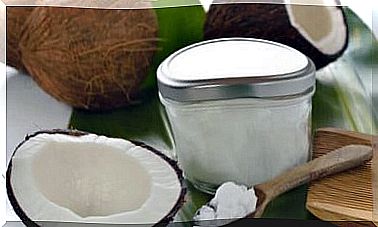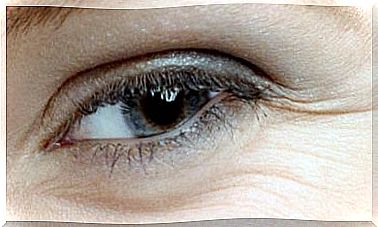Characteristics And Risks Of Kombucha Tea
Kombucha tea is a drink that is made from tea that has been fermented by a colony of bacteria and fungi. Many properties are attributed to it, but it is important to know the side effects with which it is also related.

The microorganisms in charge of fermenting the sweetened tea to give rise to this drink are called “kombucha mushrooms”. Despite its multiple benefits, you should also know and prevent the risks of Kombucha tea.
At the beginning of the fermentation process, various types of microbes participate but, as days go by, only those that make up the characteristic gelatinous body of Kombucha survive. The rest die due to the high degree of acidity and the antibiotic substances that have been secreted.
The flavor of Kombucha tea will depend on the fermentation time, so it will be softer and sweeter if it remains for less time and it will gradually acquire a more intense and acidic flavor.
Nutritional characteristics

- High content of vitamins and minerals: necessary for important biochemical processes that take place in the body, such as vitamin B and C, iron, zinc, copper and manganese.
- Variable amount of antioxidants: from black tea from which Kombucha tea is made. Their presence will depend on the fermentation time, since the higher the acidity, the less antioxidants.
- High amount of microorganisms: which gives it a powerful probiotic effect.
Kombucha tea benefits
The lack of studies regarding this drink does not allow us to affirm that the benefits traditionally attributed to it are true. However, the antioxidants and micro-organisms present in it may be related to an improvement in digestive functions.
It is also credited with beneficial properties for cardiovascular health, liver functions, and stress. According to a study published in the journal Critical Reviews in Eukaryotic Gene Expression , antioxidants from tea are also capable of preventing some types of cancer.
It must be remembered that this drink is made from tea, generally green or black, therefore, it will also report its characteristic benefits, such as:
- Helps with concentration problems.
- Diuretic effect.
- Purifying action.
- Stimulating effect.
- Astringent properties.
On the other hand, Kombucha tea, thanks to the probiotic organisms it contains, is capable of acting beneficially on the gastrointestinal tract. It has been shown that microorganisms from fermented products are capable of preventing the appearance of inflammatory diseases of the intestinal type. Also to help your treatment.
Kombucha Tea Side Effects
That this drink is beneficial in many situations does not imply that its consumption is totally without dangers. We explain what they are.
Risk of contamination

The greatest risks of Kombucha tea are related to contagion with microorganisms, if it is not prepared following a series of specific hygienic measures:
During its fermentation, Kombucha tea can be exposed to numerous contaminations from bacteria and yeasts that are harmful to health. If we do not let it ferment long enough, the drink will not acquire the degree of acidity and alcohol necessary to eliminate these microorganisms.
Frequently, samples contaminated by Aspergillus mold , which generates hepatotoxic toxins, as well as contamination by bacteria of the genus Helicobacter pylori or Salmonella, are detected . For this reason, this drink is not recommended for people who suffer from any intestinal or liver disease.
Nor is its consumption recommended in immunosuppressed people or those who have deficiencies in the functioning of the immune system. Pregnant women, lactating women, children under 5 years of age, patients with HIV or any infection should refrain from the intake of Kombucha tea.
Overconsumption of Kombucha tea
Although we do not belong to any of the previous groups, we must consume it in moderation, because in excess it can cause digestive discomfort, according to a study published in the Journal of General Internal Medicine . It should also be noted that it is a drink with a high alcohol and sugar content, therefore the rest of the diet should be monitored to ensure that we do not exceed the maximum recommended levels for these substances.
Industrial Kombucha Tea
There is also Kombucha tea made in an industrial way. In this case, the drink is suitably sterilized, but loses the probiotic effect, resulting in a drink with little nutritional value.
Kombucha tea, a potentially beneficial food
In summary, this drink can be beneficial if its consumption is not exceeded, but its intake does not guarantee any short or long-term benefits beyond those referred to by the tea itself. There are those who think that the ingestion of tea is more beneficial, since it does not present alcohol, nor microorganisms that can generate intolerance. If you have any further questions, consult a specialist.









